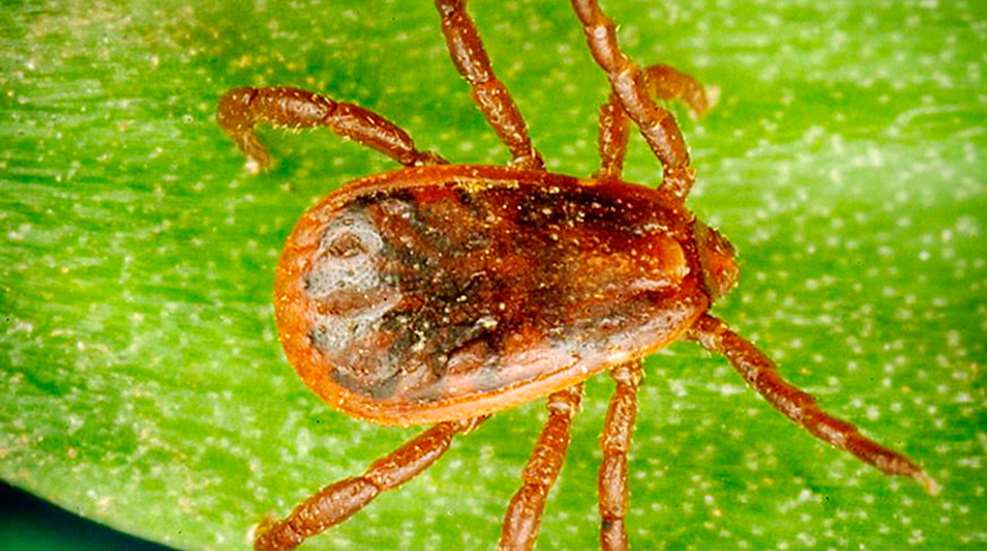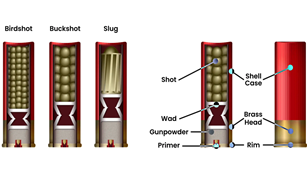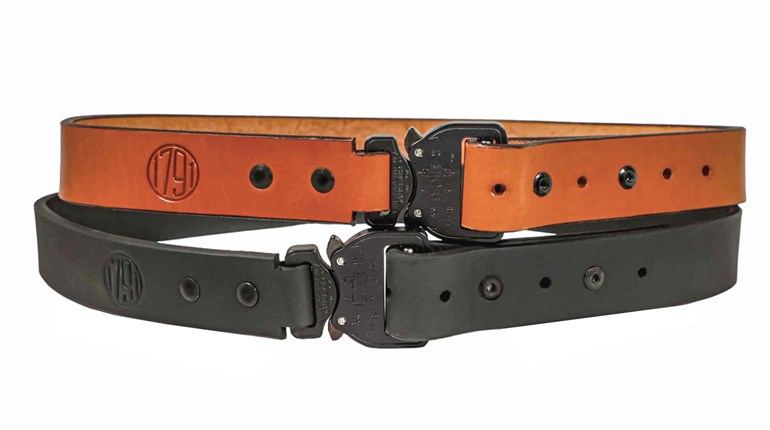
Ticks are fiendish little devils. These small, eight-legged creatures are related to spiders and feed on the blood of animals...including animals of the human variety. They also can transmit some pretty serious diseases, like Lyme disease or Rocky Mountain spotted fever, not to mention a few you've probably never heard of, such as ehrlichiosis and tularemia. Clearly, you don't want these little guys crawling on or attaching themselves to your body. Worse yet, 2017 is predicted to be the worst tick season in years.
The problem is that ticks are pretty much universal in the outdoors, where they live in grassy or wooded areas, as well as on animals. If you spend a lot of time in the outdoors-say, hunting or camping-you're practically a walking lunch invitation. But even your own backyard isn't a safe haven.
Protecting Against Ticks
Fortunately, there are protective measures you can take before heading out into tick territory, starting with wearing tick-repellent clothing.
You can buy tick-repellent clothing that has been pre-treated with permethrin, a chemical that repels, and even kills, ticks. Such pre-treated clothing remains effective for something like 70 washings and can be found at outdoor outfitters, sporting goods and department stores and at online vendors, such as www.amazon.com.
If you're more the do-it-yourself type, you can spray a tick-repellent product containing permethrin on your clothing, including shoes/boots, hats and gear. If you go this route, be sure to spray on both the inside and the outside of each item to get the best tick protection. You'll also need to re-spray after four or five washings.
Tick-repellent sprays are sold at outdoor outfitters, sporting-goods stores and drugstores, as well as online at www.amazon.com. Product names include Sawyer Permethrin Premium Insect Repellent for Clothing, Gear and Tents; 3M Ultrathon Clothing and Gear Insect Repellent (Permethrin); and Repel Permethrin Clothing and Gear Insect Repellent. Other brands are fine, too, just make sure they contain permethrin.
Lastly, you can use a tick-repellent spray on yourself, applying it directly to your skin. Such sprays contain DEET rather than permethrin, which is generally considered less effective against ticks. Understand that you'll have to spray yourself frequently to get any protection at all. This means you'll have to carry a healthy supply along with you, which can be inconvenient. There is also some question as to whether or not the repeated application of chemicals on skin is a healthy alternative-so talk it over with your family doctor before making a decision on which tick-repellent method is best for you.
But tick-repellant products are only one line of defense against ticks. Wear light-colored clothing, which makes tick spotting a tad easier. Also, consider long pants so you can tuck your pant legs into your boots. The look is admittedly not that cool, but the tucked pants will prevent ticks from crawling underneath your clothing and traveling up your leg, sight unseen. Long sleeves and gloves are other good options, if it's not so hot that you'll be uncomfortable.
Once in the outdoors, it's a good idea to walk in the center of trails and to try to avoid wooded and bushy areas that have tall grasses and/or lots of fallen leaves. These are favorite hangouts for our tick friends. Then again, if you're a hunter, camper or hiker, such avoidance precautions are not always possible or practical. So use common sense.
Checking for Ticks
There are still more tick protection measures you should take when you return from the outdoors, like taking a shower and giving yourself a head-to-toe check for ticks. Remember, you won't feel a tick latch on, so you won't know unless you look.
Starting with the hair and ears, work downward giving special attention to the armpits, belly button, and between your legs-places where ticks can latch on and be hidden from sight. Don't forget your backside, either. Use your mirror to check out the back of your head, your back, and the backs of your arms, legs and knees. Continue on down to your feet and toes.
Some ticks are really small and hard to spot, so take your time. The important thing to remember is that for every day in which you spend time in the outdoors-even a short time in your backyard-you need to do a tick check. No exceptions. And if Rover went along with you, you'll need to check him, too.
De-ticking Clothes
De-ticking clothes is just as important as de-ticking yourself. If you don't do it, you are giving undiscovered ticks a second chance to feast on you or a family member.
The big thing to remember is the sooner you take care of it, the better. So don't throw the clothes you just wore outdoors on the floor and climb into the shower. That will only give the little beasties time to crawl off your clothes and hide elsewhere. Don't throw them right in the washer, either; ticks can survive a washing, even in hot water.
What they can't survive is time in the dryer. So before washing your clothes, toss them in the dryer on high. The Tick Encounter Resource Center, www.tickencounter.org, recommends 10 minutes in a gas dryer or 15 minutes in an electric dryer.
While you're at it, don't forget to check your gear-backpacks, tents and the like. We'll talk about removing it in the next section.
Removing a Tick
If you find a tick crawling on your body, clothing or gear while in the outdoors, brush it off. If you're back home, remove it with duct tape. That way you keep skin contact with the tick to a minimum. If, however, you find a tick that's actually latched on to your body, it's time to reach for some tweezers.
Use the tweezers to grab the tick firmly and as close to the skin as possible. The idea is to pull up steadily and gently until the tick comes free. You don't want to twist the tick or jerk on it, which may cause pieces of the head and mouth to break off in your skin. Should this happen, The Center for Disease Control and Prevention, www.cdc.gov, recommends leaving the wound alone to allow the skin to heal. Or you may want to check with your doctor.
Most likely, you've heard of other ways to remove a tick: covering it with nail polish or petroleum jelly, touching it with a hot match, dabbing on gasoline or soap. Stay away from these old "home remedies." What will actually happen is that the tick will burrow deeper and release more saliva, which may increase the chance of disease transmission and-in any case-will make the tick harder to remove. So stick with the tweezers.
Treating the Bite
Once you've removed the tick, clean the bite area with soap and water and apply an antibiotic cream. Be sure to wash your hands and disinfect the tweezers with rubbing alcohol, too.
Keep an eye on the wound for signs of an infection or rash. Also be on the alert for flu-like symptoms, such as fever and chills or aches (including headaches and muscle pains), which can be the first indicator of a tick-borne illness. Note that some symptoms may not appear for days or even weeks.
As to the tick itself, dispose of it by flushing it down the toilet or keep it in a tightly closed jar, which you can show to your doctor if you develop post-bite symptoms.
Enjoying the Great Outdoors
The bottom line is that you needn't be afraid of ticks and tick-borne diseases nor of venturing into the outdoors, but you do need to take an active role in protecting yourself. And if you develop symptoms, seek help promptly.
Be tick safe. Get tick savvy.






































